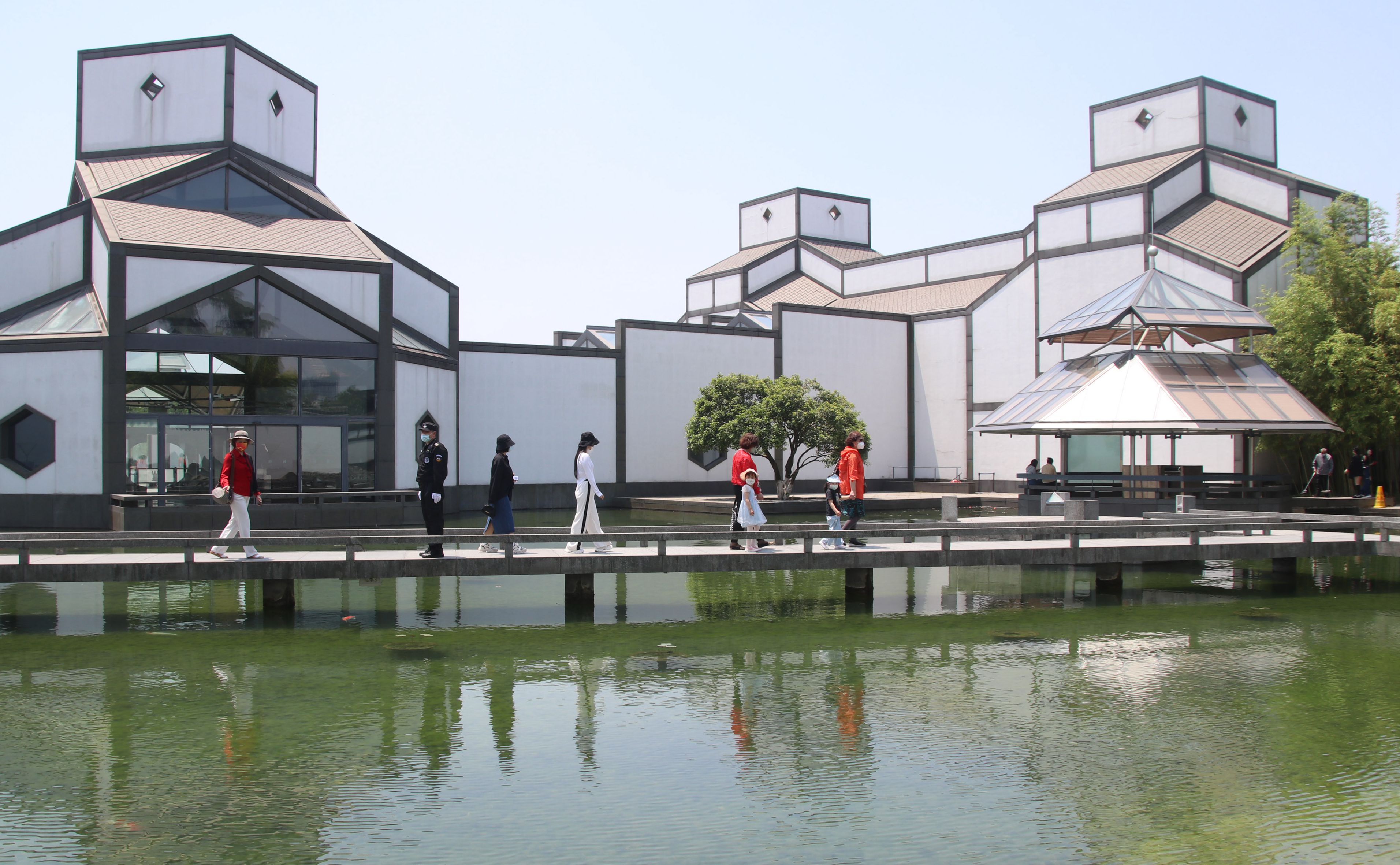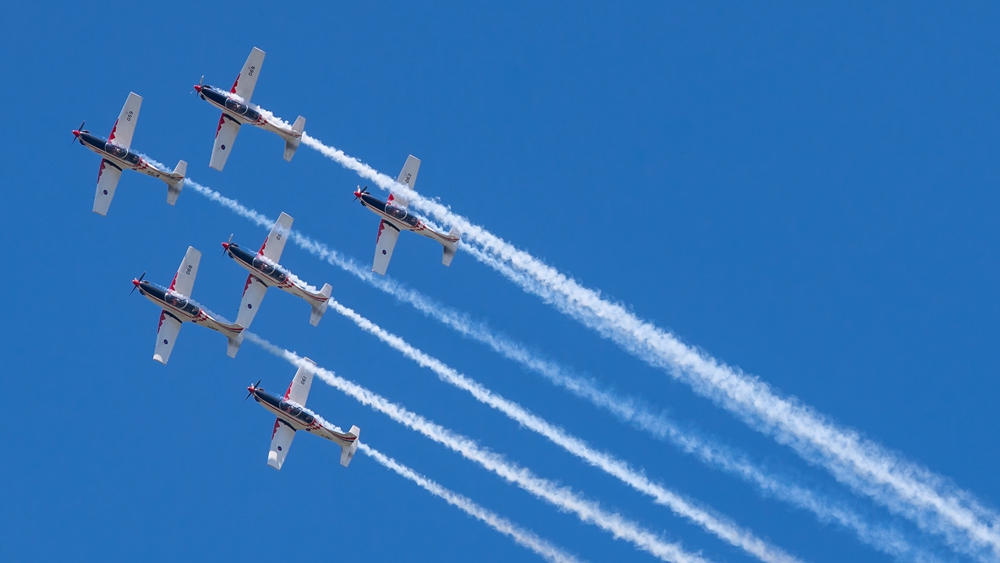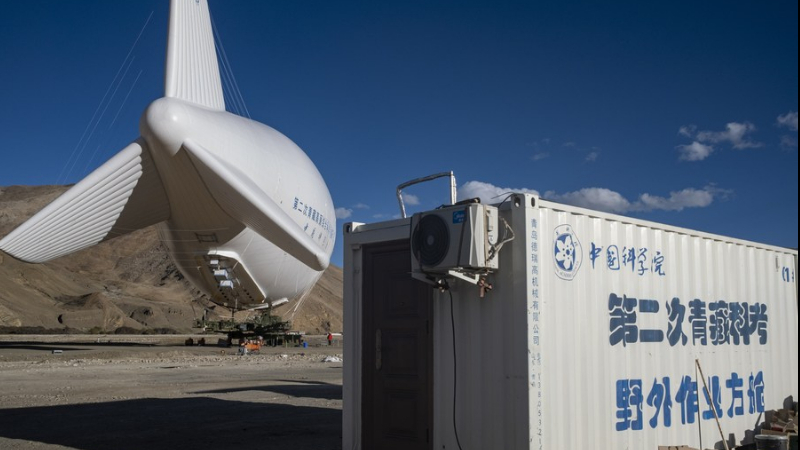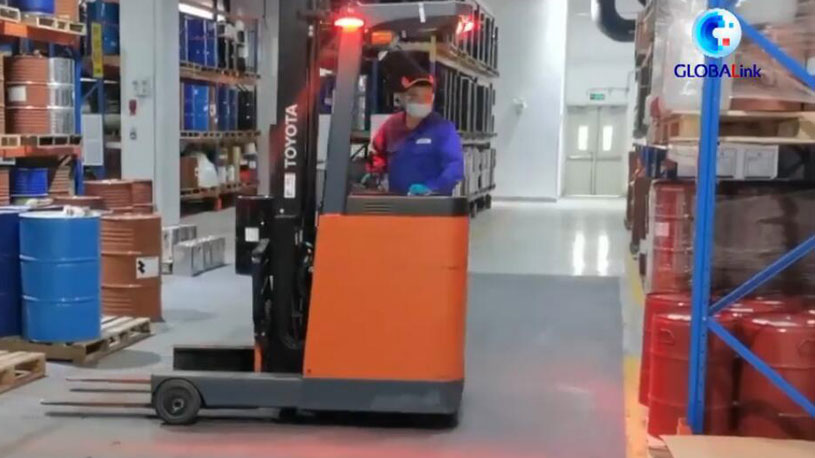* Washington's new pronouncement seems to lack sincerity and actions as America's so-called security cooperation has taken a heavy toll on Southeast Asian countries in recent years, especially with its sale of U.S.-made second-hand weapons.
* The worst accident happened in the Philippines in July 2021. A Philippine Air Force transport plane crashed upon landing in Sulu province in the southern Philippines, killing 53 and injuring 50 more. Many Southeast Asian countries, such as Thailand and Indonesia, are facing the same predicament.
* Analysts said the military air disasters reminded them of the deep-rooted unequal nature of military cooperation with the United States.
by Xinhua writers Yan Jie, Liu Kai
MANILA, May 20 (Xinhua) -- In the U.S.-ASEAN Special Summit concluded last week, U.S. President Joe Biden pledged to strengthen security cooperation with Southeast Asian countries.
Washington's new pronouncement seems to lack sincerity and actions as America's so-called security cooperation has taken a heavy toll on Southeast Asian countries in recent years, especially with its sale of U.S.-made second-hand weapons.
As tragedies caused by some second-hand weapons happen from time to time, analysts from the Southeast Asian countries have warned the "costly trap" in such procurement, appealing for avoiding over-dependence on a single military equipment supplier.
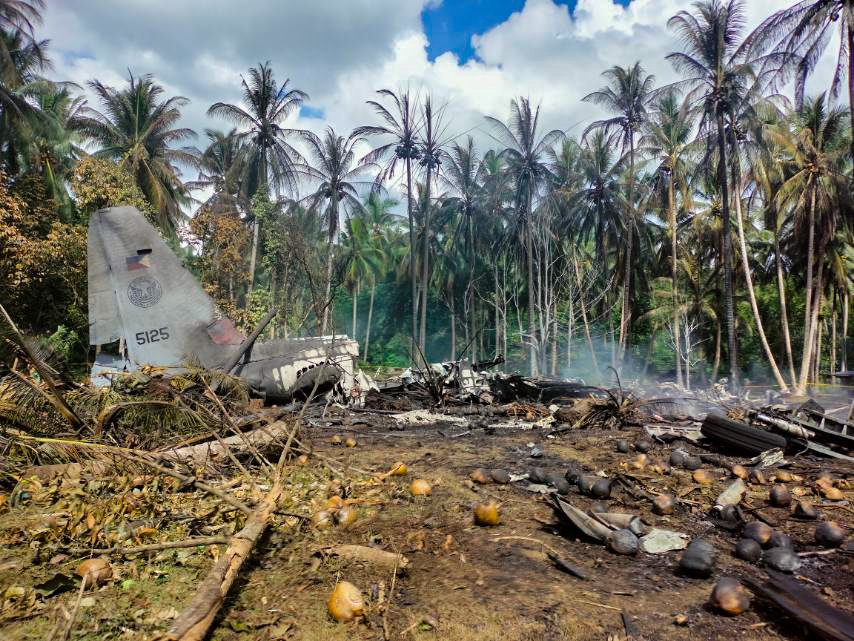
Photo taken on July 4, 2021 shows the crash site of a C-130 Hercules transport plane of the Philippine Air Force in Sulu Province, the Philippines. (Joint Task Force Sulu/Handout via Xinhua)
MILITARY AIR DISASTERS
The worst accident happened in the Philippines in July 2021. A Philippine Air Force (PAF) transport plane crashed upon landing in Sulu province in the southern Philippines, killing 53 and injuring 50 more.
The crash of the 33-year-old second-hand C-130 Hercules built by the U.S. firm Lockheed was the deadliest PAF plane crash that concerns the country's procurement contracts with U.S. companies in past decades.
According to local media, the C-130 Hercules NR 5125 first flew in 1988 and had served in U.S. Air Force until it was put in storage in 2016 before being sold and delivered to the PAF in January 2021.
Right after that, the United States officially handed over the plane as a "security cooperation assistance" to the Philippines at a handover ceremony in February of that year.
At the ceremony, Philippine Defense Secretary Delfin Lorenzana said that the Philippines only paid 1.6 billion pesos (roughly 32.57 million U.S. dollars) out of the total cost of 2.5 billion pesos (roughly 50.89 million dollars), adding that the United States agreed to "shoulder" the rest of the cost.
Many Southeast Asian countries, such as Thailand and Indonesia, are facing the same predicament.
Thailand started getting equipped with U.S. fighter aircraft since 1966. According to the Thai-language newspaper Matichon, five U.S.-made F-16 jets have crashed during the past 12 years, leaving two Thai pilots dead. The latest crash happened in March, involving one F-16 fighter that had served in U.S. Air Force for 20 years before being sold and delivered to the Royal Thai Air Force two decades ago.
In Indonesia, one F-16 jet exploded and burst into flame during a national defense training in 2015, leaving the pilot injured. An investigation by the military has found the cause of the accident was the antiquated engines, which made the Indonesian Air Force ground all F-16 jets for a time.
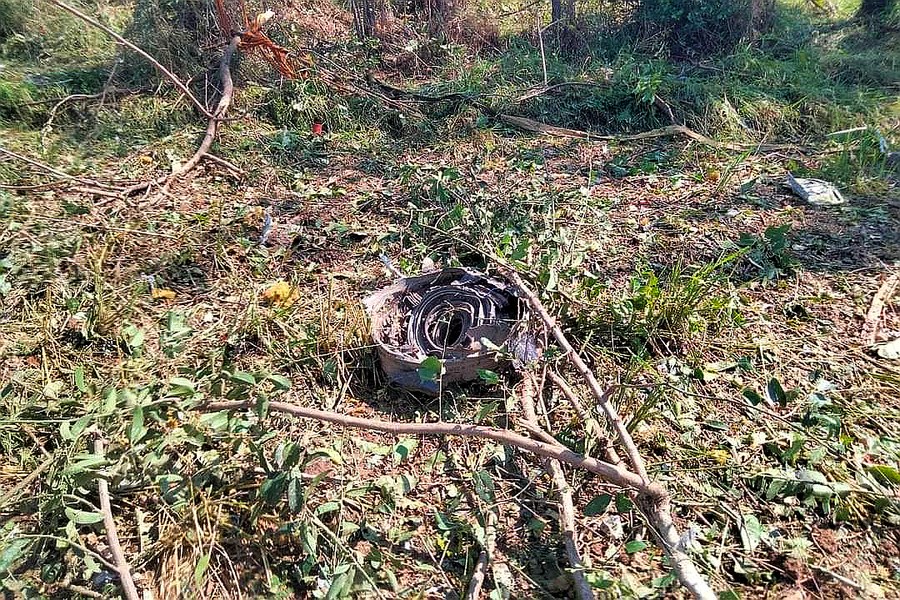
File photo taken on Dec. 3, 2021 shows the wreckage of an F-5 military jet in Lop Buri, Thailand. (Xinhua)
U.S. COSTLY TRAP
As a matter of fact, Southeast Asian countries have to spend a fortune on these second-hand weapons.
Indonesia, Southeast Asia's largest economy, procured 24 second-hand U.S.-made F-16 jets in 2011 at 750 million dollars.
Besides, high operating and maintenance costs of the second-hand U.S. military equipment pose another headache for the Southeast Asian countries.
According to official data, the Thai government spent 326 million baht (roughly 9.45 million dollars) in the 2017-2020 fiscal year to retrofit four F-5 fighter jets to update parts and equipment.
Thai Air Force spokesman Prapas Sornchaidee has said that the air force has to bear the aging aircraft's high operating and maintenance costs procured from the United States.
Vice Air Marshal Donny Ermawan Taufanto, secretary-general of the Indonesian Ministry of Defense, said that Indonesia's Air Force relied heavily on decade-old U.S.-made F-16 jets. Besides the aging fleet, limited spare parts and munitions as well as difficulties in securing them have made problems for Indonesia.
An Indonesian military analyst, on condition of anonymity, told Xinhua that it is indeed unwise for Indonesia to purchase second-hand fighter jets from the United States since the domestic manufacturers are not capable to repair and maintain them independently.
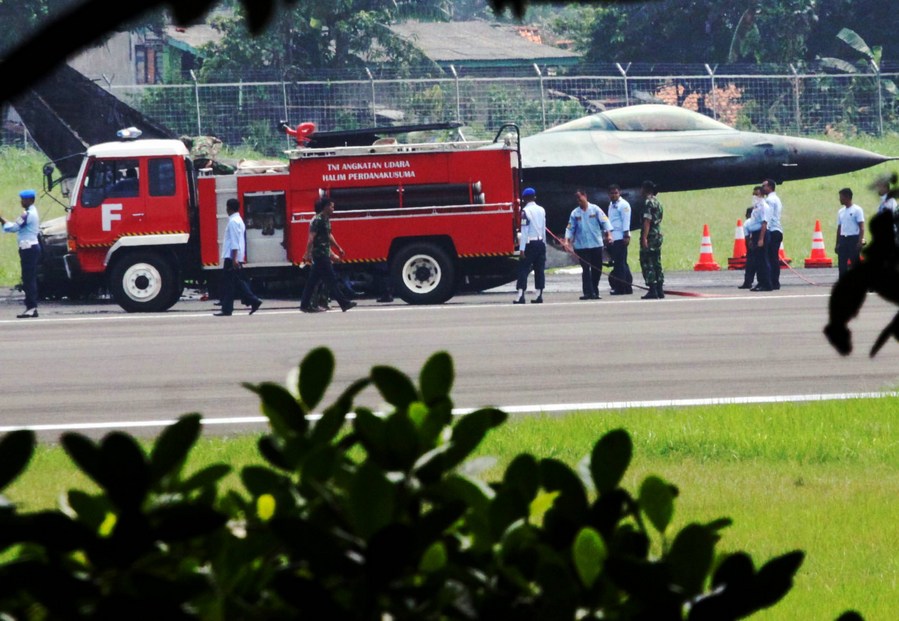
Indonesian Air Force officials arrive at the accident site of an F-16 jet fighter at Halim Perdanakusuma Airport in Jakarta, Indonesia, April 16, 2015. (Photo by Danta K./Xinhua)
DEEP-ROOTED UNEQUALITY IN MILITARY COOPERATION WITH U.S.
Analysts said the military air disasters reminded them of the deep-rooted unequal nature of military cooperation with the United States.
Wilson Lee Flores, a columnist for The Philippine Star, an English daily newspaper, described cooperation with the United States as a "vestige of past colonialism."
"The bilateral military cooperation started in 1946 as a very unequal arrangement between a colonized country and its former colonizer, with American strategic, military, and other interests given more priority than the interests of the Philippines," Flores said.
Professor Rommel Banlaoi, chairman of the Philippine Institute for Peace, Violence and Terrorism Research, said the Philippines has no choice but to continue to receive surplus military equipment from the United States due to the defense procurement system.
Moreover, the exclusivity and incompatibility of the U.S.-made military equipment make it more difficult to find replacements, thus giving the United States greater leverage to control the armed forces of the Southeast Asian countries.
Surasit Thanadtang, former president of Thailand's National Defense College, said that although his country has bought those U.S.-made second-hand aircraft, it has to ask for permission from the United States if it wants to improve those jets.
"It's like we are renting the aircraft from the U.S.," said Surasit.
He added that since the entire system of the Thai Air Force, including the software system of the military assets, was sourced from the U.S. model and technology, it is challenging to have new equipment from other countries to align with the U.S. systems.
"There is the source code, and the U.S. has been very tricky in sharing the source code for other new equipment to join with its systems. The U.S. can influence many countries because of this secret and its strong systems," he told Xinhua.
Many Southeast Asian countries are finding ways to avoid over-dependence on a single military equipment supplier.
Indonesia signed a deal to buy 42 Rafale fighter jets from France in February. Jakarta Post, a daily English language newspaper in Indonesia, said in its editorial that by relying too much on the U.S.-made military assets, Indonesia has been vulnerable to arms restrictions and embargoes.
(Xinhua correspondents Wang Yaguang, Wang Yuanyuan from Bangkok, Wang Aona, Nurul Ramadhan from Jakarta, Dario Agnote from Manila also contributed to the story.)
(Video reporters: Liu Kai, Yan Jie, Wang Yaguang, Wang Yuanyuan, Wang Aona, Yang Yunqi and Guo Huixin; video editors: Hong Liang and Zhang Yuhong)■


